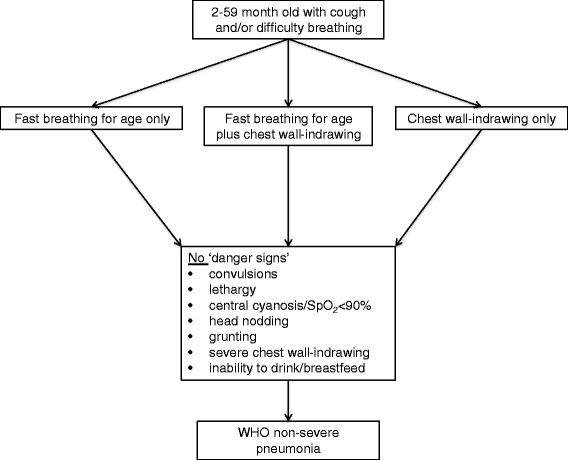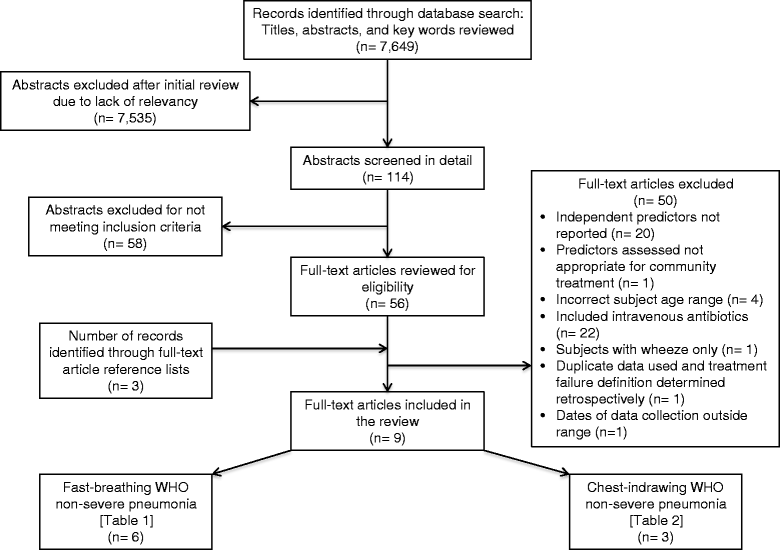Predictors of treatment failure for non-severe childhood pneumonia in developing countries--systematic literature review and expert survey--the first step towards a community focused mHealth risk-assessment tool?
- PMID: 26156710
- PMCID: PMC4496936
- DOI: 10.1186/s12887-015-0392-x
Predictors of treatment failure for non-severe childhood pneumonia in developing countries--systematic literature review and expert survey--the first step towards a community focused mHealth risk-assessment tool?
Abstract
Background: Improved referral algorithms for children with non-severe pneumonia at the community level are desirable. We sought to identify predictors of oral antibiotic failure in children who fulfill the case definition of World Health Organization (WHO) non-severe pneumonia. Predictors of greatest interest were those not currently utilized in referral algorithms and feasible to obtain at the community level.
Methods: We systematically reviewed prospective studies reporting independent predictors of oral antibiotic failure for children 2-59 months of age in resource-limited settings with WHO non-severe pneumonia (either fast breathing for age and/or lower chest wall indrawing without danger signs), with an emphasis on predictors not currently utilized for referral and reasonable for community health workers. We searched PubMed, Cochrane, and Embase and qualitatively analyzed publications from 1997-2014. To supplement the limited published evidence in this subject area we also surveyed respiratory experts.
Results: Nine studies met criteria, seven of which were performed in south Asia. One eligible study occurred exclusively at the community level. Overall, oral antibiotic failure rates ranged between 7.8-22.9%. Six studies found excess age-adjusted respiratory rate (either WHO-defined very fast breathing for age or 10-15 breaths/min faster than normal WHO age-adjusted thresholds) and four reported young age as predictive for oral antibiotic failure. Of the seven predictors identified by the expert panel, abnormal oxygen saturation and malnutrition were most highly favored per the panel's rankings and comments.
Conclusions: This review identified several candidate predictors of oral antibiotic failure not currently utilized in childhood pneumonia referral algorithms; excess age-specific respiratory rate, young age, abnormal oxygen saturation, and moderate malnutrition. However, the data was limited and there are clear evidence gaps; research in rural, low-resource settings with community health workers is needed.
Figures
References
-
- Handbook IMCI . Integrated management of childhood illness. World Health Organization. 2005.
-
- Pneumonia: the forgotten killer of children. United Nations Children’s Fund. 2006. http://www.unicef.org/publications/files/Pneumonia_The_Forgotten_Killer_.... Accessed 28 Aug 2014.
-
- Management of pneumonia in community settings. United Nations Children’s Fund/World Health Organization. 2006. http://whqlibdoc.who.int/hq/2004/WHO_FCH_CAH_04.06.pdf?ua=1. Accessed 28 Aug 2014.
Publication types
MeSH terms
Substances
Grants and funding
LinkOut - more resources
Full Text Sources
Other Literature Sources
Medical
Miscellaneous



